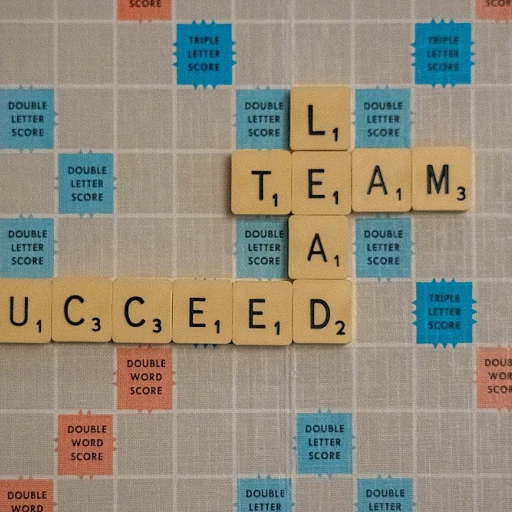
Understanding the Role of Medical Assistants
Embracing the Multifaceted Responsibilities
In the dynamic world of healthcare, medical assistants hold a crucial role that merges both administrative and clinical duties. At its core, the position demands an adept ability to navigate patient care, while ensuring that healthcare facilities operate smoothly. This unique dual responsibility often requires professionals who are versatile and can swiftly adapt to various healthcare environments, from bustling hospitals in New York to local clinics and specialized care units.
Navigating Healthcare Staffing
The demand for qualified medical assistants is on a steady incline, which presents both opportunities and challenges for healthcare staffing. As interest in medical jobs grows, so does the competition. Staffing agencies play a pivotal role in aligning the right candidates with employment opportunities, ensuring there's a continuous flow of skilled professionals ready to tackle tasks ranging from patient care to technology integration.
The Growing Need for Specialized Skills
Medical assistants are increasingly required to possess expertise that extends beyond traditional care. With the rise of healthcare technology, professionals must be equipped with knowledge in digital patient records and telehealth solutions. As team medical dynamics evolve, the adaptability and educational background of these assistants contribute significantly to efficient healthcare delivery.
Meeting the Demand for Comprehensive Care
Successful assistant staffing hinges on understanding the nuances of each healthcare setting. A holistic approach to recruitment considers not only the technical skills of candidates but also their ability to deliver excellent customer service and collaborate effectively with registered nurses and other healthcare personnel. This well-rounded skill set is essential for optimizing patient experiences and achieving long-term care objectives.
For those looking to grasp the complexities of managing staffing resources in the tech sector, Mastering the Art of Managing Contingent Talent in Tech may offer useful insights into the intricate processes involved.
Challenges in Medical Assistant Staffing
Addressing Core Staffing Hurdles
Recognizing the distinct challenges in medical assistant staffing is essential to improve healthcare facilities' operations and ensure successful team integration. Navigating the dynamic employment landscape for healthcare professionals, particularly medical assistants, demands a keen understanding of the obstacles faced by both employers and candidates.- High Turnover Rates: Medical assistants often encounter demanding work environments that sometimes lead to considerable turnover rates. As staffing agencies and healthcare staffing teams strive to maintain a consistent workforce, the need for effective staffing solutions becomes more critical.
- Diverse Employment Needs: With the varying needs of different healthcare facilities, from travel nurse positions to long-term employment opportunities, tailoring approaches to satisfy specific requirements poses a considerable challenge.
- Competition for Qualified Candidates: There is a consistent demand for skilled medical assistants, which often leads to a competitive landscape among agencies and healthcare establishments trying to attract the best talent. This competition can sometimes overshadow the focus needed on providing quality patient care.
- Compliance and Regulations: Ensuring that both staffing agencies and hiring entities comply with industry regulations and standards is a significant aspect of maintaining healthcare staffing quality. This involves continuous monitoring and updating of practices to adhere to evolving healthcare regulations.
- Training and Skill Gaps: Bridging the gap between expected skill levels and actual capabilities of candidates requires ongoing training and development efforts. This also includes familiarizing employees with the latest healthcare technologies and customer service standards.
Leveraging Technology in Recruitment
Using Recruitment Technology to Enhance Hiring
In today's digital age, technology plays a pivotal role in optimizing medical assistant staffing solutions. With the advent of cutting-edge recruitment software, healthcare facilities are able to streamline their staffing processes, effectively finding the right talent for various medical assistant jobs. Here, we explore how technology can be leveraged to address hiring challenges faced by staffing agencies, recruiters, and healthcare facilities.
Firstly, technology makes it possible for staffing agencies to maintain comprehensive databases of potential candidates. This allows for quick and efficient matching of medical assistants with employment opportunities that match their skills and preferences, whether it's in long-term care facilities, locum tenens positions, or travel assignments. Moreover, a recruiter can easily filter candidates based on qualifications, experience, and specialty, enhancing the recruitment process.
Moreover, automation tools significantly reduce the time spent on administrative tasks. Applicants can be automatically screened based on predefined criteria, enabling recruiters to focus their time and energy on engaging with qualified candidates. This can be especially beneficial for healthcare staffing agencies managing large volumes of applications, ensuring that top talent is swiftly identified and employed.
Another key feature of recruitment technology is the ability to enhance customer service. By providing a seamless and engaging application experience, candidates are more likely to remain interested and actively pursue roles within your team. This not only improves the reputation of the staffing agency but also contributes to higher employee satisfaction and retention rates.
It is crucial to choose hiring platforms that cater specifically to the medical field, as they are tailored to meet the unique demands of healthcare staffing. Effective platforms include functionalities such as integrated background checks and credential verification, ensuring that only the most qualified medical personnel are selected to deliver patient care.
To stay competitive in the healthcare staffing industry, staying informed about the latest advancements in recruitment technology is essential. By doing so, medical staffing agencies can continue to efficiently connect with healthcare professionals, ultimately enhancing care delivery. For further insights on similar topics within the tech hiring realm, explore our article on understanding the differences between headhunters and recruiters in tech hiring.
Key Features of Effective Hiring Platforms
Essential Attributes of Advanced Recruitment Systems
To streamline the hiring process for medical assistants, investing in the right technology can be transformative. Effective hiring platforms should encompass a blend of functionality, user-friendly interfaces, and robust features tailored to the unique needs of healthcare staffing. Here are essential attributes to consider when selecting recruitment systems:- Comprehensive Candidate Management: A powerful recruitment platform should offer seamless management of candidates throughout the hiring process. This includes tracking applicants, scheduling interviews, and facilitating communication between recruiters and potential hires, ensuring efficient healthcare staffing.
- Intelligent Screening Tools: Advanced technology can simplify initial screening by utilizing AI to assess qualifications and suitability for healthcare and medical assistant roles. Smart filtering options help recruiters focus on the most promising candidates, enhancing staffing resources.
- Integration with Existing Systems: Recruitment platforms must integrate smoothly with existing HR and staffing agency systems. This ensures a cohesive working environment, enabling seamless data transfer and reducing time spent on manual entry.
- User-Friendly Interface: An intuitive interface is crucial for both recruiters and candidates. A simplified user experience not only speeds up the process for healthcare staffing agencies but also enhances candidates' interactions, fostering greater interest in available employment opportunities.
- Robust Analytics: Effective hiring solutions should offer data analytics capabilities. These provide insights into candidate actions, recruiter performance, and overall efficiency, helping to identify trends and areas for improvement in assistant staffing efforts.
- Support for Travel and Locum Tenens Roles: In medical staffing, roles such as travel nurses or locum tenens position may be needed. Platforms should support the unique demands of these positions, allowing for flexible staffing solutions that cater to short or long-term care needs.
Best Practices for Streamlining the Hiring Process
Streamlined Hiring Techniques for Efficiency
The process of hiring medical assistants can be complex, involving numerous stages from initial job postings to final employment offers. By streamlining this process, healthcare facilities can save valuable time and resources while ensuring they secure top candidates. Here are some best practices to achieve an efficient hiring process:- Clearly Define Job Roles: Begin with a clear and precise description of the medical assistant role within your team. This should include specific duties and required qualifications to attract the right candidates. It curtails wasted time on interviewing unsuitable applicants and provides clarity for both parties.
- Utilize Effective Staffing Agencies: Collaborating with specialized staffing agencies can facilitate access to a pool of qualified candidates. These agencies, often with deep experience in healthcare staffing, understand the nuances of employment for medical personnel, thus reducing the selection time.
- Implement Automated Response Systems: Incorporating technology that automates applicant responses and scheduling can speed up the initial stages of recruitment. Such systems enhance communication efficiency, allowing recruiters to concentrate on more demanding aspects of the hiring process.
- Standardize Interview Protocols: Create a consistent interview guide that helps evaluate candidates uniformly. This not only simplifies the assessment process for each applicant but ensures fair and unbiased selection criteria are applied.
- Leverage Data Analytics: Utilizing analytics tools can provide insights into hiring trends and help in making informed decisions to enhance the recruitment process. By understanding patterns, healthcare facilities can align their staffing strategies with market needs.
- Promote Long-term Employment Opportunities: Highlight the potential for long-term growth and development within the organization during interviews. Emphasizing career advancement can attract motivated professionals seeking stability and career progression.
Future Trends in Medical Assistant Staffing
Embracing the Future of Medical Assistant Staffing
The landscape of assistant staffing is rapidly evolving, and staying ahead in this competitive market requires an understanding of future trends. As healthcare facilities continue to demand more efficient staffing solutions, several trends are emerging that could reshape the way medical professionals and staffing agencies approach recruitment and employment opportunities.- Technology Integration: Advancements in technology are set to transform healthcare staffing. From intelligent algorithms that help match medical assistants to the right jobs quickly, to mobile platforms that offer seamless interaction between healthcare professionals and staffing agencies, the future is digitally driven.
- Increased Demand for Flexibility: With the rising trend of locum tenens and travel roles, there is a push for more flexible work arrangements. Medical staffing agencies are recognizing the need to cater to professionals seeking short-term employment opportunities, something particularly crucial for teams looking to manage workforce variability efficiently.
- Focus on Patient-Centric Care: The growth of value-based care models places a higher emphasis on patient outcomes. Consequently, medical assistants who can demonstrate strong patient care skills are likely to be favored in hiring decisions. Healthcare facilities may adjust their recruitment criteria to prioritize candidates who align with these patient-focused approaches.
- Enhanced Training and Development: As the expectations from medical personnel grow, continuous education and training for assistants are becoming integral to their career progression. Staffing solutions now need to include upskilling opportunities to ensure healthcare assistants remain competitive in the job market.
- Expansion of Remote Work: Remote care services, supported by advancements in telehealth, have opened new possibilities for medical support staff. This trend is expected to grow, giving assistants the flexibility to work remotely in certain roles while still delivering high-quality care.













